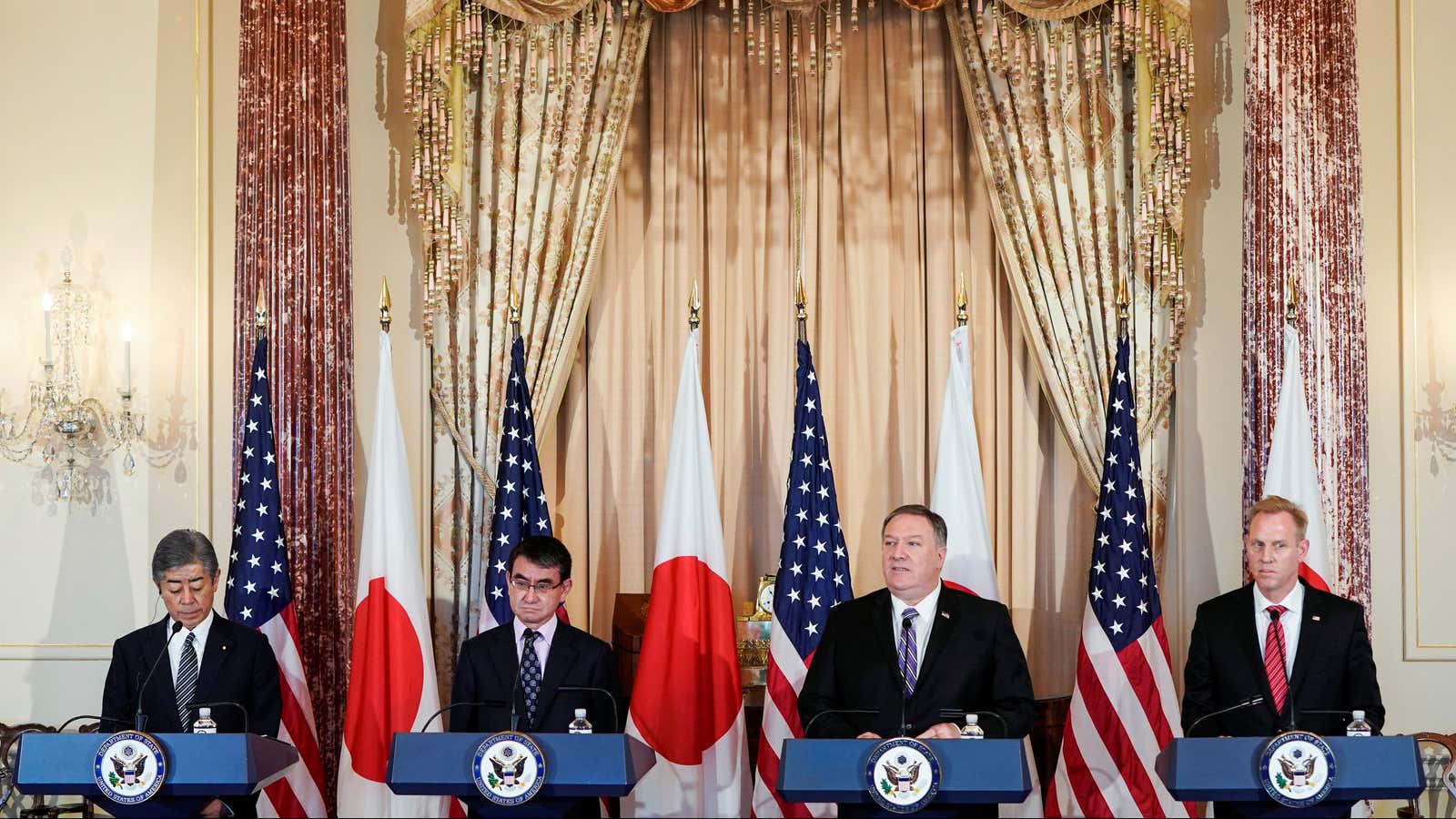In a briefing yesterday in Washington, DC, US secretary of state Mike Pompeo declared that “a cyberattack could, in certain circumstances, constitute an armed attack under Article 5 of the US-Japan Security Treaty.” The security agreement, ratified after World War II, guarantees the United States’ defense in the event of an attack on Japan.
“This is significant from the perspective of deterrence,” said Japanese defense secretary Takeshi Iwaya, also present at the briefing.
In the first such meeting between Japanese and US defense officials since 2017, the two sides shared their concerns for stability in the region. “Geopolitical competition and coercive attempts to undermine international rules, norms, and institutions—especially from China—present challenges to the alliance,” Pompeo said.
At a time when US lawmakers quibble over what constitutes state-coordinated digital espionage, definitions are in order. According to the Japanese defense ministry, a cyber-attack is an “abuse of information and communications networks” in the attempt to “access, steal, falsify or destroy information.”
Defense against such attacks—there were nearly 130 billion of them against Japan in 2016—has become a pressing issue for the Japanese government. With a majority of these attacks originating from China, it’s difficult to say how the US and Japan will now respond to them. In a joint statement from their defense officials, they said actions would be merited “on a case-by-case basis, and through close consultations.”
But difficulty in tracking responsible actors poses a challenge. In February, when the Australian parliament experienced an attack on its networks, there was speculation that the attempted breach originated from China. The attack “suggests a state actor because it’s hard to make money from breaching a parliamentary system,” said Fergus Hanson, head of the International Cyber Policy Center in Australia, reported the New York Times (paywall).
Until simple-to-understand evidence is possible in cyber-attacks, denying allegations as slander will remain the status quo for world powers like China. Meanwhile, defensive cooperation between allies like the US and Japan will continue behind the scenes.
And it would appear that Japan can use all the help it can get. Late last year its former minister of cybersecurity admitted to not knowing how to use a computer and being confused as to what USB drives are. He resigned in earlier this month.
Correction: An earlier version of this article attributed comments to a cybersecurity minister, Yoshitaka Sakurada, who had resigned earlier to this story’s publication on April 11.
